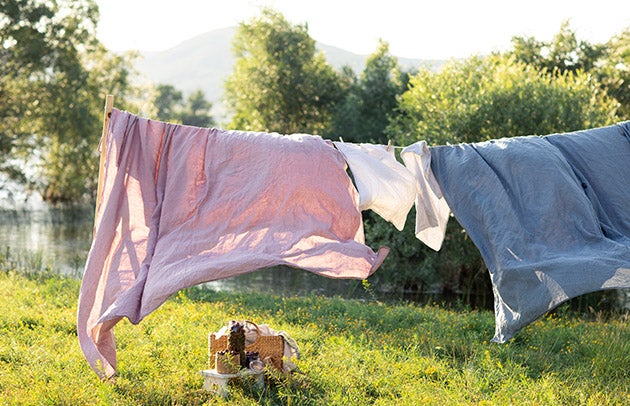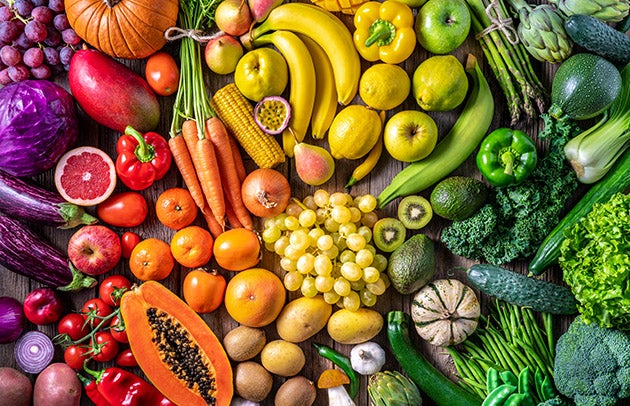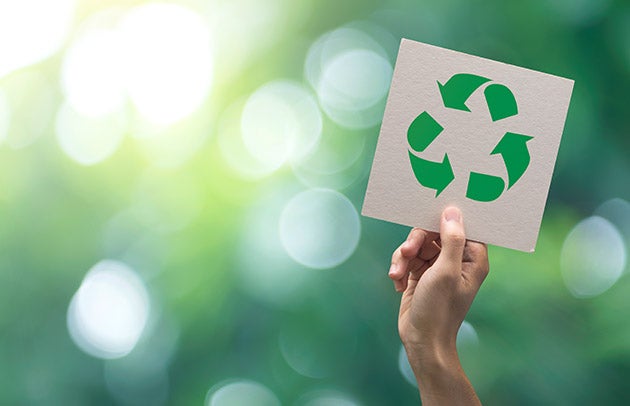
From baking to bidets — faculty offer sustainability tips for the year ahead
It’s the first month of a new year and if you’re anything like me you will have made a long list of well-meaning and self-improving resolutions for 2022. For those determined to live this year on a more sustainable note, faculty at the USC Dornsife College of Letters, Arts and Sciences have compiled a list of their favorite sustainability tips — small changes in behavior that can help make us feel good about helping shift the trajectory toward a greener future. From baking to bidets to eating more Brussels sprouts, here are their ideas.
 Moh El-Naggar | Dean’s Professor of Physics and Astronomy and Professor of Physics and Astronomy and Chemistry and Divisional Dean for the Physical Sciences and Mathematics
Moh El-Naggar | Dean’s Professor of Physics and Astronomy and Professor of Physics and Astronomy and Chemistry and Divisional Dean for the Physical Sciences and Mathematics
“The pandemic turned me into a sourdough baker! I have enjoyed cooking for years but thought baking too prescriptive for my taste. After all, when your lab weighs and measures things all day, do you really want to do that at home? In March 2020, finding baking yeast was hard, and I turned my biophysics and microbiology knowledge to bread. With an active microbial culture (lovingly called ‘Bucky’ in our house) collected by a neighbor from an English barley field, I can now turn water, wheat and salt into better tasting bread than most loaves transported by fossil fuels to stores. And the early ‘practice’ loaves? We ate those delicious mistakes too.”
Sarah Feakins | Professor of Earth Sciences
“Growing up in rainy England, we always line-dried our clothes and ran out to collect them between frequent cloud-bursts. In typically warm and dry Los Angeles weather, hanging your laundry on a folding rack — even inside, for those of us without yards — is an easy energy-saver. And your clothes will last longer!”

Joe Árvai | Dana and David Dornsife Chair, Wrigley Institute Director and professor of psychology
“It’s awfully easy to make decisions based on emotion in the heat of the moment. It’s equally easy to follow the crowd and just do as others do. But, when it comes to decisions about sustainability, I always start by taking a step back and asking myself, ‘What matters to me? What are my values? And how would I feel in the future if I made a choice that ran counter to them?’ This stop-and-think approach has served me well on everything from the products I buy and the foods I eat, to the things I do at work and for fun.”

Wändi Bruine de Bruin | Provost Professor of Public Policy, Psychology and Behavioral Science
“In several studies, we have found that even environmentally-conscious people don’t necessarily know how to best reduce their carbon footprint. For example, many families fight about who left the lights on when in fact running the air conditioner less will have a much bigger effect on reducing their carbon footprint. And when thinking about how to reduce the carbon footprint of their diets, many people worry about avoiding waste, but actually eating less meat makes a much bigger difference.”
William Berelson | Professor of Earth Sciences, Environmental Studies and Spatial Sciences
“Eat less meat; the carbon footprint of beef is pretty extraordinary. There is the destruction of forest (living carbon sinks) to accommodate pastureland. And the conversion of lots of carbon into less carbon, with waste methane and CO2 as a result. So, I’m trying to eat less meat. I’m succeeding. Tip: Roast Brussel sprouts and cauliflower at 400 F and drizzle with tahini, lemon and olive oil (whisked).”

Darren Ruddell | Associate Professor (Teaching) of Spatial Sciences
“We do many sustainability best practices at home, but the one my kids love the most is gardening. We have a garden at home and we work on the community garden at Will Rogers Elementary School in Santa Monica. My sons, Lincoln, age 6, and Dylan, age 3, love learning about the different plants, digging holes and getting dirty, in addition to watching the fruit and veggies grow, and then being able to use them in a meal. We also talk about the importance of composting, minimizing food waste, and promoting ecosystem services by planting certain plants to attract bees and other pollinators.”

Erin Moore | Professor (Teaching) of Anthropology
“The mantra is ‘refuse, reduce, reuse, recycle.’ I didn’t know the first law was ‘refuse’ — don’t take the little shampoos in hotels, don’t accept flyers, samples or giveaways at conferences that you don’t need.
“In the Anthropology Department, we try to be more sustainable in the workplace — avoiding lunches packaged in Styrofoam and opting for water pitchers with paper cups instead of individual plastic water bottles and plastic cups.
“I make my own yogurt, and kombucha, use public transportation and ride a bicycle. I have a drought garden with California native plants and save all the falling leaves to mulch. A bidet attachment on the toilet saves on paper. I have cloth bags for the grocery store and smaller ones for produce (or I just throw the loose apples or bananas into my wicker basket). I try to remember to bring my own containers to meals out.
“I had one student with a bamboo spork in his wallet. I was impressed!”
Josh West | Professor of Earth Sciences and Environmental Studies
“Heating and cooling are a big part of our energy use; for many of us, they equate to roughly a third of our total energy footprint. You can save energy — and money — by making sure your systems are well-maintained and by turning down the thermostat in winter and wearing an extra layer indoors, or compromising a bit on air conditioning in the summer (maybe with the help of a fan). Even a change of a couple of degrees makes a difference. And if you’re out of the house during the day, consider changing your thermostat up or down by 10 to15 degrees while you’re not there.”